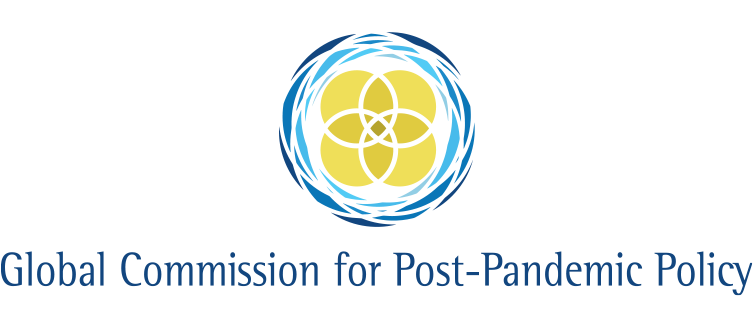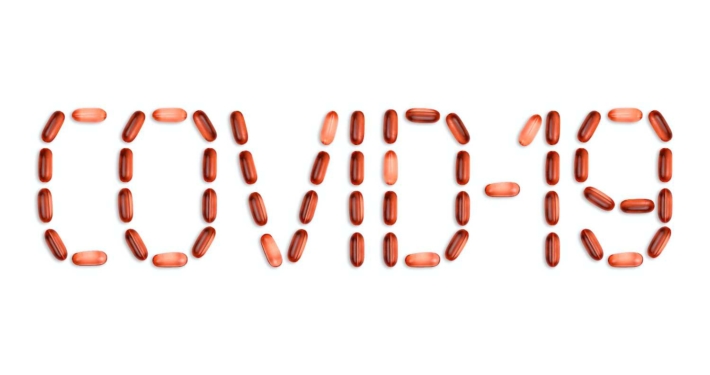The Pandemic, week to July 4th
Health
The number of confirmed COVID-19 cases recorded worldwide began to rise again this week. The change is being driven by rising infection rates on every continent except for South America—reflecting the rapid global spread of the more transmissible Delta variant of the coronavirus (B.1.617.2).
The new wave in Europe started in the United Kingdom—where cases continue to climb despite high vaccination rates—but are now also rising in Ireland, Portugal, Spain and Denmark. On the African continent, new infections are accelerating across Southern Africa, especially in South Africa. The new wave was initially thought to be a resurgence of the Beta variant of the coronavirus (B.1.351), but more recent evidencesuggests that it is indeed the Delta variant driving new infections in the region.
There is a cluster of rising infection rates in South East Asia, in Malaysia, Indonesia and Thailand notably. Even Oceania—up until now spared the worst of the virus—is seeing cases rise in Australia. Bucking the trend at this point, cases dropped markedly in South America this week—likely reflecting the end of a long and drawn-out wave of infections due to the Gamma variant (P.1), with the Delta variant yet to overtake it as the dominant strain.
Overall the Delta variant is now present in at least 96 countries, reports the World Health Organisation (WHO), up from 85 last week. That is likely to be an underestimate given the limited genetic sequencing capacity of many developing nations.
In the European Union, the EU Digital COVID Certificate (EUDCC)—a bloc-wide vaccine passport—entered into use this week. The new system, now in operation in all 27 European Union member states, as well as Norway, Iceland and Liechtenstein, is intended to revitalise mobility within the bloc. The European Commission is also working on a deal with the United Kingdom to allow mutual recognition of the two parties’ independent COVID-19 certificates. Non-European travellers are also eligible for the certificate.
The World Bank’s International Finance Corporation (IFC) and a group of other global finance institutions jointly agreed to offer a loan of US$ 600 million to South African pharmaceutical company Aspen Pharmacare—part of the Johnson & Johnson vaccine’s supply network—to extend and expand the manufacture of COVID-19 vaccines in the country. The move follows last week’s unveiling of a new effort led by the WHO to set up a technology-transfer hub in South Africa to give companies from countries on the continent the licenses and know-how to produce COVID-19 vaccines.
Johnson & Johnson reported that its coronavirus vaccine is effective against the Delta variant. While the vaccine offers a slightly lower level of protection than it did against the original coronavirus strain, it is still more effective against the Delta variant than it is against the Beta variant, best-known for its vaccine resistance. This is the pattern already observed in the Moderna and Pfizer-BioNTech mRNA vaccines. That the major western vaccines remain effective against the Delta variant is reflected in data from the United Kingdom. While new infections are skyrocketing, hospitalisations are not.
In Germany, the Federal Ministry of Health now recommends that those who received a first dose of the Oxford-AstraZeneca vaccine be vaccinated with either the Pfizer-BioNTech or Moderna mRNA vaccinesfor their second dose. While the existing consensus is that mixing vaccine may somewhat increase the incidence of mild side-effects like fever, fatigue and headaches, research indicates that a mixed regimen offers protection similar to that offered by the full course of an mRNA vaccine.
In India, results are in from a Phase III clinical trial of the coronavirus vaccine candidate developed by Bharat Biotech—an Indian company—although not yet peer-reviewed. In a trial involving 25,800 participants between 18 and 98 years of age, the vaccine, called Covaxin, had a reported efficacy of 93.4% in preventing severe cases of COVID-19, 77.8% in preventing symptomatic infection and 65.2% in preventing symptomatic infection with the Delta variant. A new locally manufactured vaccine may help to accelerate India’s vaccination effort.
Economy
After negotiations led by the OECD, 130 nations and jurisdictions signed onto a two-pillar plan proposed by the United States to reform international taxation rules so that multinational enterprises pay tax where they operate rather than where they choose to reside. The framework would introduce a 15% minimum corporate tax rate and rules governing where taxes are paid.
In the United States, one of the hidden consequences of the COVID-19 pandemic has been a rise in early retirements. For many older workers, the prolonged pause on economic activity and the prospect of unemployment was enough to force the decision. For a fortunate few, 401(k) accounts overflowing from high stock values made the choice an easy one. But most early retirements are amongst low-income workers who have lost their jobs and are pessimistic about finding another.
Nevertheless, the United States Department of Labour announced strong jobs numbers in its June statistical update—making the prospect of recovery look rosier than it did a month ago. The United States economy added 805,000 jobs in June, more than the 706,000 expected, and a dramatic improvement on the 583,000 added in May. The unemployment rate still rose slightly, from 5.8% to 5.9%. That is good news, however. It reflects higher labour force participation—or simply put, more people looking for jobs.
In the European Union, Eurostat—the bloc’s statistical agency—reported a similar trend. Unemployment in the bloc declined more in May—the most recent month for which data is available—than at any other point in the pandemic, with manufacturers hiring at the fastest rate in two decades. Unemployment in the bloc now stands at 7.3%. The biggest driver of the optimistic jobs figures is Germany, where the jobless rate fell from 5.9% in April to 5.7% in May—a 0.2% change—as 73,000 people moved out of unemployment.
In Japan, things look rosier as well. A survey by the Bank of Japan—the country’s central bank—suggests thatbusiness confidence improved in the second quarter of this year to hit a two-and-a-half-year high. The finding reflects the fact that solid global demand is helping the Japanese economy to emerge from its pandemic-induced doldrums.
Politics
Johnson & Johnson has agreed to pay the state of New York US$ 230 million in a settlement that also requires it to dismantle its involvement in the production and sale of opioid pain-killers in the United States. The money from the settlement will not go to compensating the victims of the United States’ opioid crisis, but will rather be used to mitigate the effects of the crisis through addiction treatment and educational programs.
The African Union is vocally criticising the roll-out of the European Union’s Digital COVID Certificate. Under the new system, only those vaccinated with one of the four vaccines approved by the European Medicine’s Agency (EMA)—Pfizer-BioNTech, Moderna, Johnson & Johnson and Oxford-AstraZeneca—are eligible to be considered “vaccinated” under the system. The list notably excludes anybody vaccinated with doses of the Oxford-AstraZeneca vaccine manufactured under license by the Serum Institute of India—one of the main suppliers of vaccines to the developing world, via the COVAX facility.
The WHO is planning the next phase of its probe into the origins of the novel coronavirus. An increasing number of scientists and public health experts worry that political tensions between the United States and China make it nearly impossible for a new probe to credibly and objectively shed more light on the matter without political considerations intruding. Instead, some experts argue that a broad and independent investigation—similar to what followed in the aftermath of the 1986 Chernobyl nuclear disaster–is needed.
There were street protests across Brazil this week as people demanded the impeachment of President Jair Bolsonaro, and increased availability of coronavirus vaccines to help stem the tide of the pandemic. The protests followed a decision by Supreme Court Justice Rosa Weber to authorise an investigation into Bolsonaro over alleged irregularities in the procurement of the new Bharat Biotech vaccine developed in India. More protests are expected to follow.
In North Korea, state media report that Supreme Leader Kim Jong-un made comments stating that lapses in the country’s efforts to prevent the spread of COVID-19 in the country have precipitated a “great crisis,” threatening “grave consequences.” Whether this implies a large COVID-19 outbreak in North Korea—which still reports no cases of the virus—remains unclear. Whatever the case, it was enough for Mr Kim to reshuffle his party’s top leadership.
GCPPP Newsletter
We now publish a weekly newsletter to inform friends and supporters of the Global Commission’s progress and to provide updates when new content is published. Please sign up here:


 Volodymyr Hryshchenko, Unsplash
Volodymyr Hryshchenko, Unsplash
 Adam Nieścioruk, Unsplash
Adam Nieścioruk, Unsplash
 visuals, Unsplash
visuals, Unsplash


 Photo by Blogging Guide on Unsplash
Photo by Blogging Guide on Unsplash